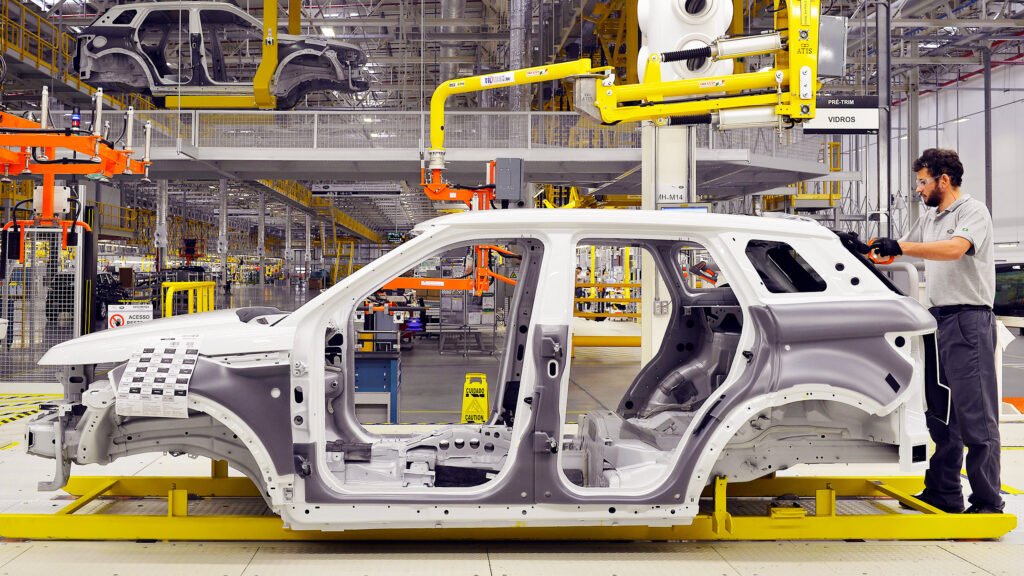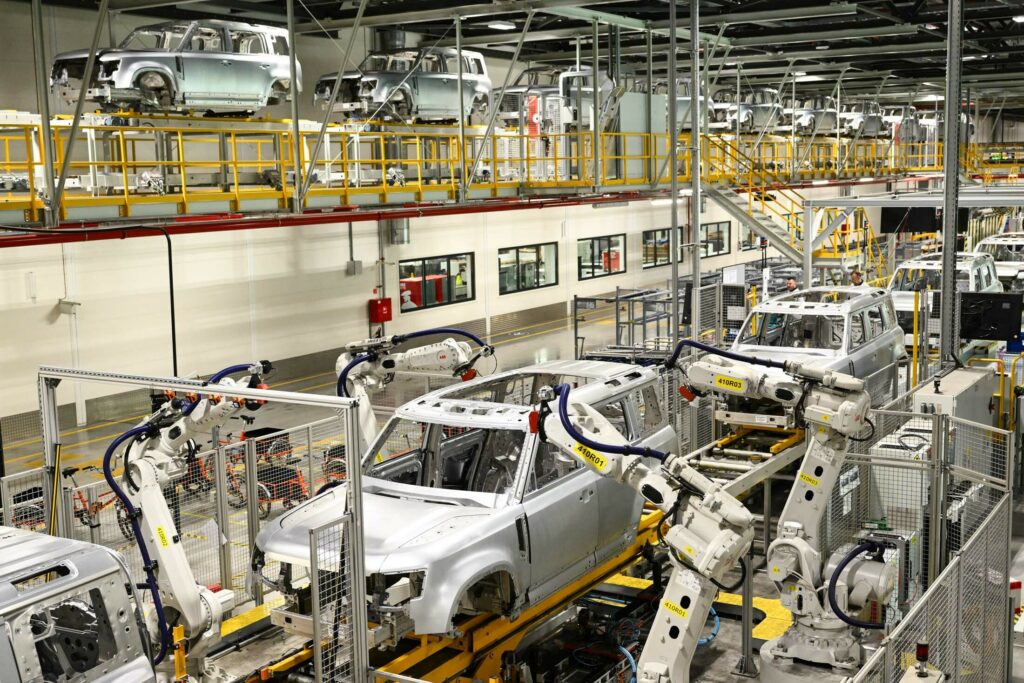

- The cyberattack is believed to have been costing JLR up to £50 million a week.
- Approximately 200,000 people work in the supply chain for Jaguar Land Rover.
- JLR had been building roughly 1,000 vehicles a day before the cyberattack.
It’s been five weeks since a cyberattack hit Jaguar Land Rover, but finally, there appears to be some light at the end of the tunnel for the British marque. According to reports, the company will restart production before Friday, but it will take several weeks for it to return to its pre-attack levels.
Not long after it was confirmed that the British government stepped in with a $2 billion (£1.5 billion) loan guarantee to help the suppliers that rely on JLR, it was confirmed that production will first resume at the automaker’s engine factory in Wolverhampton.
Read: JLR Got Hacked So Bad They’re Still Registering Cars With Pen And Paper
The automaker also operates two other factories in the UK and they, too, will be brought back online. However, no specific dates have been confirmed, with the BBC reporting the other sites will “return gradually.” It is expected to be several weeks before all operations are running at full capacity.
To make matters worse, it’s not just plants in the UK that were impacted. The cyberattack also affected its factories in China, India, and Slovakia. Some estimates claim the attack has cost JLR at least £50 million ($67 million) a week in lost production.

Supply Chain Pain
Then there’s the broader impacts across the supply chain. Approximately 200,000 employees work for firms in the carmaker’s supply chain, and many of them work exclusively for JLR. One of the most important suppliers is Evtec Group, which employs 1,250 staff, but it’s been at a standstill for weeks and employees have been sent home on 80 percent of their normal pay.
JLR says its restart will be done in phases, but given that it’s already had several false starts in working to get its factories back online, it’ll likely want to avoid committing to any hard deadlines for work to resume.
Prior to the cyberattack, the British company had been building roughly 1,000 vehicles a day. A collective of hackers known as Scattered Lapsus$ Hunters has claimed responsibility for the attack and, immediately after it, reportedly started to taunt MI6, the National Cyber Security Center, and Britain’s National Crime Agency.




